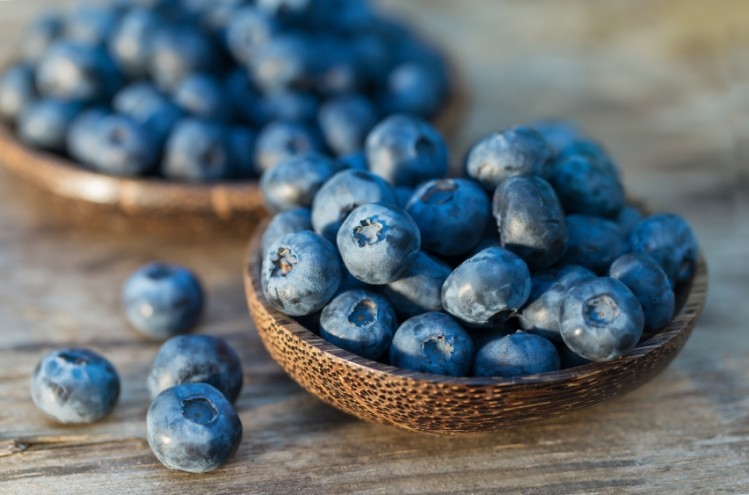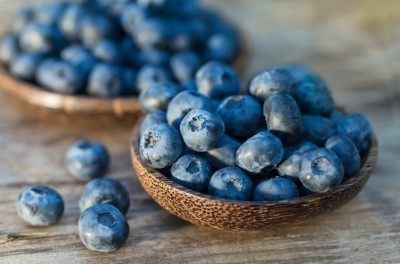Review explores blueberry bioactive compounds for blood sugar management

Their findings were outlined in the Journal of Functional Foods in a study titled Blueberry as a source of bioactive compounds for the treatment of obesity, type 2 diabetes and chronic inflammation.
“Blueberry fruits are enriched with numerous bioactive components such as vitamins, phenolic acid and anthocyanins which could contribute to these protective effects,” they wrote.
“Possible mechanisms by which blueberries exert their beneficial properties include counteracting oxidative stress, regulating glucose metabolism, improving lipid profile, and lowering inflammatory cytokine levels in animal models and preliminary human trials.”
Evidence of whole fruit blueberry benefits in glucose metabolism mixed when in vivo
According to the researchers, the predominant bioactive components that have given blueberries its reputation of benefits for the human health in recent years include ascorbic acid, flavonols, hydroxycinnamic acids, hydroxybenzoic acids, pretostilbene, resveratrol, and anthocyanins.
The researchers looked at 21 animal studies and 8 human clinical trials that have demonstrated that supplementation or consumption of blueberry or blueberry bioactive compounds cause changes in glucose metabolism and improve insulin sensitivity.
One study analyzed revealed that supplementation of 2% freeze-dried blueberry powder for 13 weeks in obese Zucker rats demonstrated significant reductions in glucose, fasting insulin, and insulin resistance. But it was contrasted by another study that reported long-term supplementation with freeze-dried whole blueberry powder did not affect the results of a glucose tolerance test in C57BL/6J obese mice.
Two of the human in vivo studies also saw no changes in serum glucose during blueberry intervention. However, the researchers argued that in vitro studies have “consistently shown that blueberry improved glucose uptake.”
“These positive cellular mechanistic studies provide evidence on the improvement of insulin sensitivity in vitro, however why the variation in the in vivo studies remains to be determined,” they added.
Blueberry extracts’ benefits more clear than whole fruit or juice
While effects of blueberry juice or whole food powder on glucose tolerance in vivo is still mixed, researchers found that supplementation with anthocyanins appear to have “a more positive effect.”
Examples include a study on mice from 2010, where fasting serum glucose concentrations were decreased and oral glucose tolerance was increased in mice fed a high fat diet supplemented with anthocyanins compared to blueberry juice.
“This result is possibly attributed to other constituents in blueberry juice such as procyanidins, chlorogenic acid, and other water-soluble compounds including sugars, which are not present in anthocyanins,” they wrote. “It is possible that this beneficial effect of anthocyanins on glucose tolerance may be due to a direct effect on the liver.”
Many of the animal studies analyzed found that following anthocyanin or blueberry extract supplementation, anthocyanins were detected in the liver, blood, kidney, and ocular tissues with an intact form, “suggesting that anthocyanins and/or their metabolites can be distributed to various tissues via blood and are therefore expected to regulate metabolic changes in the body.”
Suggestions for future studies: RCTs and gene-nutrient interaction
The researchers wrote that further randomized controlled studies in the longer term are needed to evaluate the role of blueberries and blueberry extracts to support human health, though the “current evidence is promising.”
It is also important to add that there are still a large number of phytonutrients in blueberries under exploration, especially anthocyanins, they added. There were up to 27 different anthocyanins present in blueberry, but the researchers’ review saw only several specific ones exhibiting strong hypoglycemic capacity, such as delphinidin-3-O-glucoside (D3G), malvidin-3-O-glucoside (M3G), and Cyanidin-3-glucoside (C3G).
“A major question to be addressed is whether a single purified component or constituent in blueberries such as C3G or anthocyanins, or multiple constituents in this fruit produced synergic effects on human health,” they wrote.
They also suggested that future studies could focus on the interactions of nutrients and genes to offer a better understanding of the beneficial effects of blueberry at a molecular level, which can lead to development of intervention strategies for individuals who are obese or have Type 2 Diabetes.
Source: Journal of Functional Foods
Published online ahead of print, http://dx.doi.org/10.1016/j.jff.2016.12.036
"Blueberry as a source of bioactive compounds for the treatment of obesity, type 2 diabetes and chronic inflammation"
Authors: Min Shi, Hayley Loftus, Andrew J. McAinch, Xiao Q Su
















